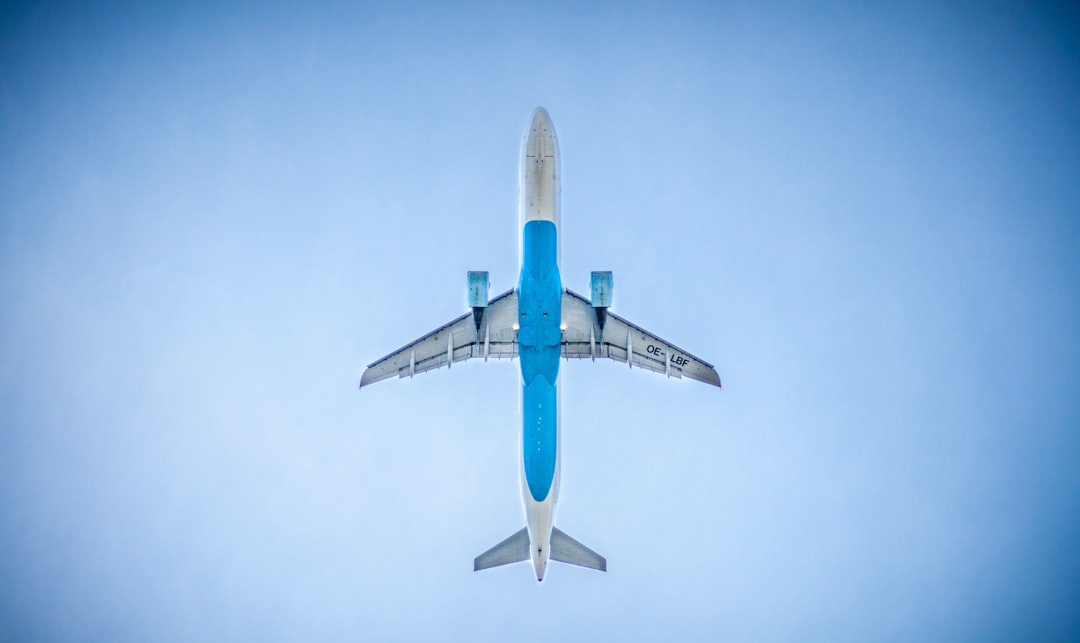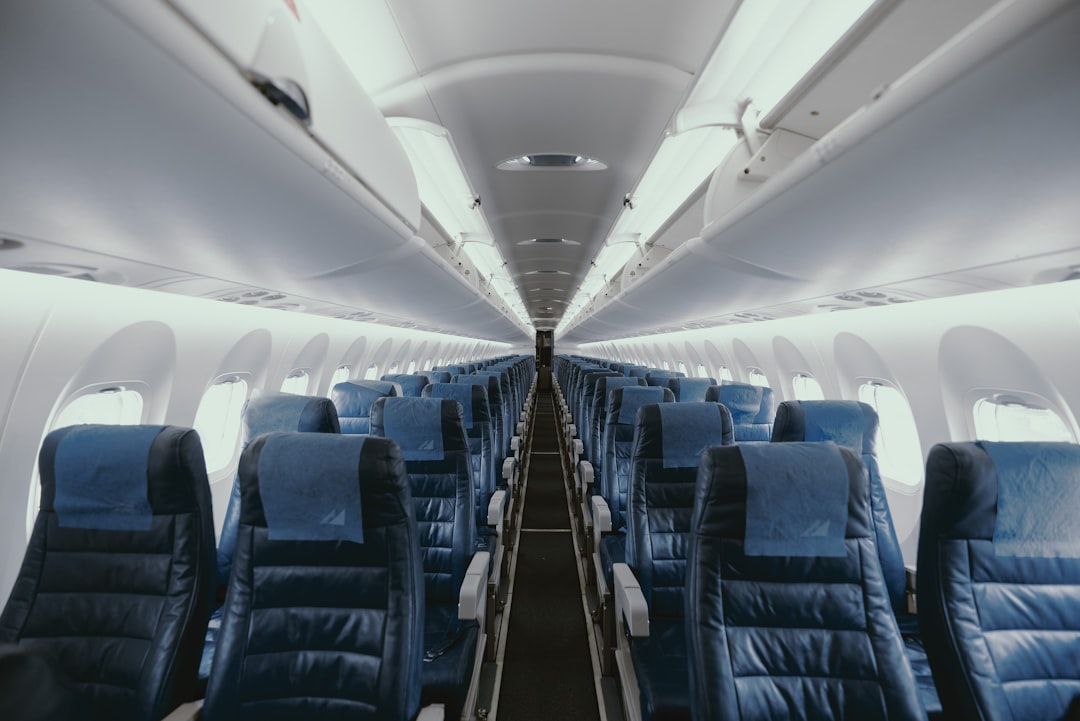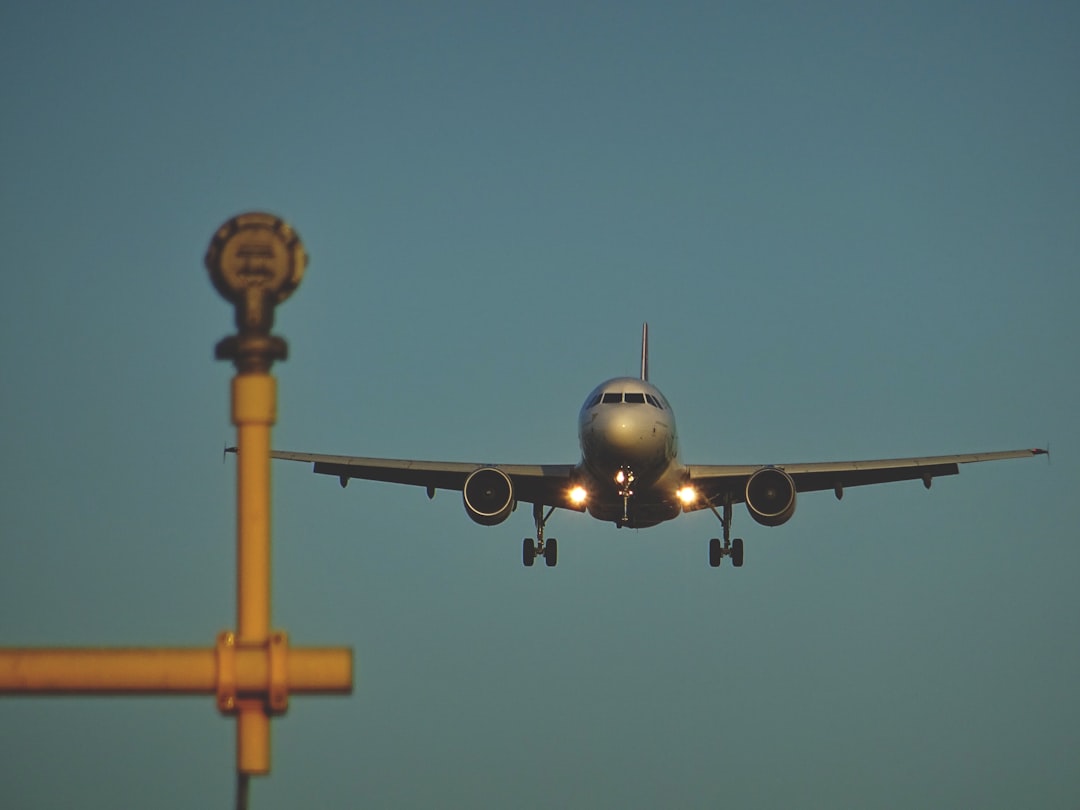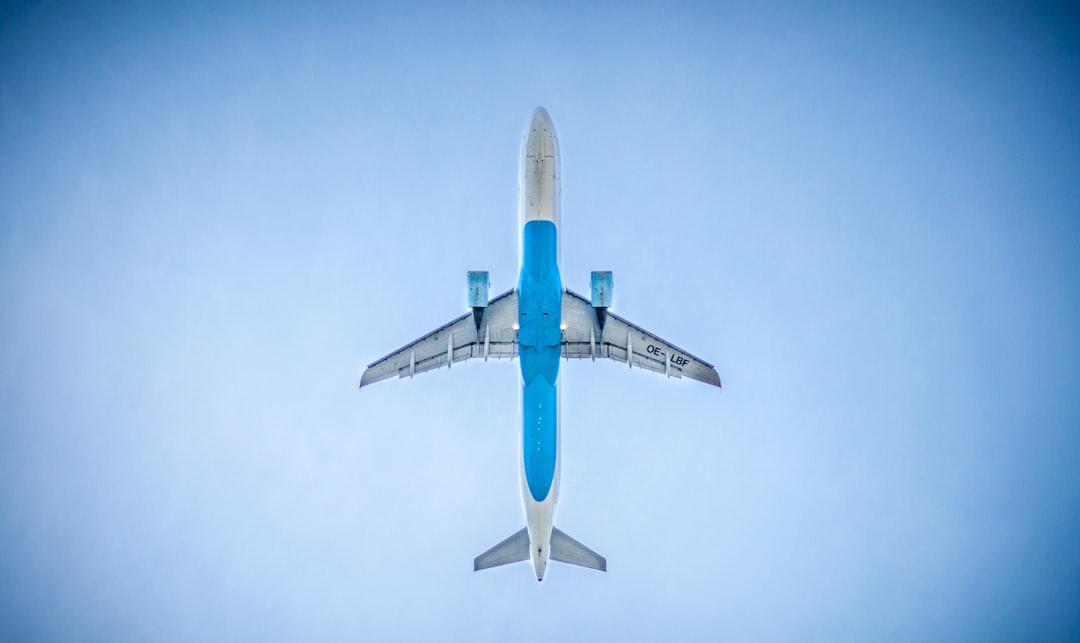Understanding Airline Cancellation Policies Key Factors and Recent Changes in 2024
Understanding Airline Cancellation Policies Key Factors and Recent Changes in 2024 - New DOT Rules Mandate Automatic Cash Refunds for Cancellations
The Department of Transportation (DOT) has imposed new rules requiring airlines to automatically issue cash refunds to passengers when flights are canceled or significantly delayed. These rules are aimed at saving consumers money, with the DOT estimating that airlines will be required to refund over half a billion dollars annually in previously overpaid fees. The DOT is trying to crack down on inconsistent refund policies, which have historically left consumers at the mercy of airline policies that vary widely.
Under the new rules, airlines are required to process refunds within seven days of the cancellation or delay, returning the money using the original payment method. This change means that passengers no longer have to request refunds, as they are now automatically processed. The new rules also require airlines to issue cash refunds for lost luggage that is not delivered within twelve hours.
However, while these changes aim to provide greater consumer protection, some argue that they do not go far enough. Critics point to the fact that airlines still retain the ability to offer alternative forms of compensation, such as travel vouchers, instead of cash refunds, despite the requirement for automatic cash refunds. Further, many believe that the DOT needs to establish clearer guidelines for what constitutes a "significant delay" to ensure consistent application of the new rules. Despite these criticisms, the new rules are a step in the right direction for ensuring passengers are treated fairly when airlines fail to provide the service they have paid for.
The Department of Transportation (DOT) has implemented new regulations that mandate automatic cash refunds for airline passengers when their flights are canceled or significantly delayed. This shift in policy aims to address a long-standing issue of inconsistent and often complicated refund processes that disproportionately burdened travelers. The new rule compels airlines to automatically refund passengers within seven days of a cancellation or delay, regardless of the passenger's claim.
This change has the potential to significantly impact the airline industry. It's likely to generate substantial financial consequences as airlines adapt their systems to streamline the automatic refund process. Whether these changes lead to a more customer-focused approach within the industry or simply increase operational costs remains to be seen.
One key aspect of these regulations that caught my attention is the requirement to refund ancillary fees, such as baggage fees and seat selection costs. This is unprecedented in the airline industry and might offer valuable insight into the evolving relationship between airlines and their passengers. It also raises interesting questions regarding how the industry will address these specific charges in the future.
As a researcher, I am particularly interested in the impact of technology on this transition. How will airlines implement real-time transaction tracking to ensure swift refund processing? And what role will technology play in informing passengers of their refund rights? These are crucial questions that deserve further investigation.
Overall, these new DOT regulations represent a significant departure from previous practices and hold the potential for substantial change within the airline industry. While their long-term implications remain to be fully understood, they undoubtedly demonstrate a growing emphasis on passenger rights and transparency within the travel sector.
Understanding Airline Cancellation Policies Key Factors and Recent Changes in 2024 - JetBlue Faces Highest Impact from 2024 Refund Regulations
The new 2024 refund rules are poised to hit JetBlue harder than most airlines. Almost 60% of its flights could qualify for automatic refunds, compared to a national average of 30%. This means JetBlue is dealing with almost twice as many flight disruptions. The new rules are designed to ensure consistent refund practices across the board, meaning airlines will have to automatically process refunds without passengers having to request them. This will affect JetBlue in a big way, especially since they also have to refund baggage fees if luggage is delayed. It's likely JetBlue will need to make big changes to its systems and policies to adapt to these new rules.
The new 2024 refund regulations are going to hit JetBlue hard. Estimates suggest that they will need to allocate over $100 million per year just for automatic refunds, which is going to significantly impact their bottom line. This means that JetBlue needs to make some major changes to their financial systems to handle these automatic refunds. They'll have to integrate legacy systems with new payment processing technology, a complex engineering challenge.
JetBlue has always been known for their good customer service, but with these new rules, they might be forced to shift their focus away from service enhancements to compliance-related operational adjustments. This could lead to a diluted brand image. The possibility of refunds for ancillary services, like baggage fees, is especially challenging. They will have to accurately track those fees and process refunds within a seven-day timeframe.
JetBlue has always had a more lenient refund policy compared to other airlines, but these new regulations will force them to adhere to strict federal standards, fundamentally changing how they interact with customers. The automated payment processing system will require a lot of staff training, and JetBlue may even need to hire more staff to handle the expected surge in refund requests, increasing their operational costs.
It is likely that consumers will come to expect refunds as the norm rather than the exception, and JetBlue will need to change their communication strategies about refund timelines and processes. They also need to make sure that refund mechanisms are seamlessly integrated into their booking and cancellation platforms, which will require some sophisticated software updates and robust cybersecurity measures.
It is possible that this will lead to a larger trend in the airline industry, where refund policies become a major factor in consumer purchase decisions. JetBlue will need to take all of this into account when it comes to evaluating its financial reserves and its marketing strategies.
While JetBlue, like all airlines, will eventually adapt to these new regulations, balancing customer service with these stricter refund requirements is going to be challenging. This will put a strain on operational efficiency and impact their overall performance metrics. It remains to be seen how JetBlue, and other airlines, will handle this new reality.
Understanding Airline Cancellation Policies Key Factors and Recent Changes in 2024 - Airlines Required to Offer Free Rebooking and Meals for Delays
Airlines are now required to provide free rebooking and meals for delays and cancellations, a new regulation that has taken effect as of July 30, 2024. This change is meant to offer travelers more protection during disruptive travel situations. Major US airlines are required to automatically provide these amenities, a step toward putting more emphasis on passenger rights. The Department of Transportation has also taken measures to ensure airlines are upfront about fee structures and clearly communicate when travelers are entitled to refunds. While this shift is positive for passengers, there are some who argue that the new rules do not go far enough. They contend that airlines should be required to offer cash refunds and that there needs to be a clearer definition of what constitutes a "significant delay." In spite of these criticisms, these new regulations are a positive step towards holding airlines accountable for disruptions and improving the travel experience for consumers.
The recent 2024 regulations requiring airlines to automatically refund passengers for cancelled flights have sparked considerable discussion among industry experts and consumers alike. These new rules, while aiming to improve customer protection and transparency, are likely to have a significant impact on the airline industry.
Prior to these regulations, the refund process often left passengers feeling frustrated and uncertain about their rights. Now, airlines face a major operational challenge – integrating complex systems to ensure swift and efficient automatic refund processing. These systems must be capable of real-time transaction tracking across various platforms and must adhere to the strict timelines mandated by the DOT.
The financial implications of these changes are substantial. Estimates suggest that airlines will face a cumulative financial impact of over half a billion dollars annually due to automatic refunds. This includes refunding for cancelled flights and, perhaps more surprisingly, delayed luggage, pushing the industry to re-evaluate long-standing policies.
The need to refund ancillary fees like seat selection and checked bags adds an extra layer of complexity to the financial picture. Airlines must develop robust tracking systems for these fees, creating additional operational burdens.
The shift towards standardized refund policies could also change consumer expectations. Passengers might come to see refunds as a standard practice, potentially influencing their perception of the quality of service offered by airlines. This could lead to a need for increased service enhancements by airlines in order to remain competitive.
The influx of refund requests could also strain airline staffing, forcing them to hire additional personnel or retrain existing staff to handle the increased workload. These potential changes could lead to higher operational costs and necessitate a reassessment of human resources strategies across the industry.
Failure to comply with the new refund policy can result in severe penalties for airlines, introducing an additional layer of operational risk. This requires airlines to adapt their systems rapidly and ensure ongoing compliance with the complex regulatory framework.
While the goal is to make refunds more accessible and efficient, relying on technology to facilitate this process could create vulnerabilities. The risk of system failures and data breaches poses challenges in protecting sensitive financial information.
The reliance on technology raises concerns about the potential for system disruptions, which could backfire and lead to customer dissatisfaction. This could undermine the intended benefits of the new regulations.
In conclusion, the new 2024 regulations represent a significant shift in the airline industry, creating both opportunities and challenges. The regulations, while aiming to address consumer concerns about fairness and transparency, will undoubtedly require significant adjustments for airlines to meet the new compliance requirements and manage their evolving operational processes.
Understanding Airline Cancellation Policies Key Factors and Recent Changes in 2024 - Upfront Disclosure of Change and Cancellation Fees Now Mandatory
The airline industry has undergone a change in regulations requiring upfront disclosure of change and cancellation fees. This new rule, aiming to enhance transparency in airline pricing, forces airlines to be upfront about the cost of changing or canceling a flight. Passengers can now make more informed decisions knowing the potential fees associated with modifying their travel plans. While this mandate is intended to protect consumers from hidden costs, its effectiveness and the level of compliance from airlines remain to be seen. The ultimate impact of this regulatory shift on airline operations and customer satisfaction remains uncertain.
The Department of Transportation (DOT) has mandated upfront disclosure of change and cancellation fees for airlines. This is a big deal. The thinking is that airlines will be forced to be more transparent, which will make it easier for passengers to compare prices and choose the airline that best fits their needs. But is it really that simple? I'm not so sure. It seems like airlines are still trying to find ways to hide their fees, even with these new rules. For instance, it's hard to know how they'll present these fees upfront and how this will impact consumer behavior. Will consumers really be more likely to book flights with airlines that disclose their fees? Or will airlines just get better at disguising their fees?
There's also the question of how airlines will adapt to these new rules. It's likely that airlines will need to invest in new technology to track fees and provide accurate information to passengers. This could be a big expense for airlines, and it's unclear how they will balance this cost with the potential benefits of more transparent fees. Some think this might push airlines to focus on more efficient operations to avoid cancellations and refunds, thus making it less likely for them to charge these fees in the first place.
I'm not sure what the future holds, but I think this is definitely a step in the right direction. It's good that passengers are getting more information about airline fees. It's still going to take some time to see how these regulations will impact the airline industry, and it will be interesting to see how passengers react. One thing's for sure: the airlines are going to have to get more creative in how they handle their fees.
Understanding Airline Cancellation Policies Key Factors and Recent Changes in 2024 - Consumer Advocacy Drives Development of New Airline Policies
Consumer advocacy has played a powerful role in pushing for changes in airline policies, particularly concerning refunds and transparency. The Department of Transportation's recent push for automatic cash refunds when flights are canceled is a prime example. This demonstrates a growing awareness of passengers' rights and the need for airlines to be held accountable for disruptions. The requirement for airlines to openly disclose change and cancellation fees aims to give travelers a clearer picture of potential costs associated with their trips. However, some argue that these changes don't go far enough and more significant measures are needed to ensure fairness and transparency across the board. It will be interesting to see how the airline industry adjusts to these new regulations and how advocacy efforts continue to shape the landscape of passenger rights.
The recent changes in airline policies are significant, pushing the industry into uncharted territory. For the first time, airlines are legally obligated to process refunds for ancillary fees, such as baggage and seat selection charges. This means airlines need to rethink their long-standing financial models and could lead to more transparent pricing.
Beyond the impact on consumers, these changes are also forcing airlines to integrate advanced technology for tracking transactions. This necessitates robust systems that can process refunds in real-time, posing significant engineering and cybersecurity challenges.
The new rules have placed JetBlue in a particularly precarious position. With almost 60% of its flights potentially qualifying for automatic refunds, the airline is facing an annual financial impact exceeding $100 million. If they don't manage these changes effectively, it could lead to an operational crisis.
The requirement for automatic refunds within seven days presents a substantial operational hurdle for airlines. Many legacy systems currently lack the necessary capabilities for swift processing of refunds, necessitating costly updates and potential system downtime.
Research suggests that consumer advocacy not only influences policy change but also impacts satisfaction metrics. This means airlines may have to adapt their services to meet the heightened customer expectations of transparency and accountability.
Another new requirement mandates that airlines offer meal vouchers and rebooking options during extended delays or cancellations. This represents an unprecedented push towards operational accountability, directly impacting the travel experience.
The requirement for upfront disclosure of change fees seems like a positive step, yet skeptics argue that airlines might still use creative tactics to obscure these costs. This could undermine the intent of the regulation, which was to empower consumers to make informed choices.
The automatic processing of refunds presents risks of systemic disruptions. Technology failures could not only delay refunds but also compromise sensitive customer data, raising concerns about compliance and consumer trust in airline systems.
The financial implications of refunding ancillary services add layers of complexity that could alter the competitive dynamics within the airline sector. Airlines that adapt quickly may gain a competitive edge, while others could struggle to manage the operational burden of compliance.
Historical data indicates that airlines have historically resisted voluntary changes to refund policies due to financial concerns. Therefore, the new legal mandates may trigger a broader trend where consumers increasingly expect refunds as standard practice rather than an exception.
Understanding Airline Cancellation Policies Key Factors and Recent Changes in 2024 - Six-Month Compliance Period for Airlines to Adapt to 2024 Rules
Airlines have been given six months to adjust to new rules from the Department of Transportation (DOT) that were put in place back in April. These rules focus on giving passengers more rights and clarity when it comes to refunds. They require airlines to automatically refund money for canceled flights and significant delays. The idea is to ensure consumers get their money back faster, without having to jump through hoops. It's a big change, and airlines are going to have to make some significant adjustments to their systems to comply with these new rules.
Companies like JetBlue, which have a high rate of flight disruptions, are going to face a bigger challenge, as they'll have to process a lot more refunds. It's yet to be seen how effectively airlines will embrace these changes. While the intent is positive, how these rules are actually put into practice will be key to their success.
The new airline refund rules have set off a wave of adjustments across the industry, forcing carriers to grapple with both financial and operational challenges. The DOT estimates that the new regulations could result in a combined annual impact of over half a billion dollars for airlines. This means they'll be forced to make significant changes to their systems and policies, particularly in managing refunds for canceled flights and delays.
JetBlue, in particular, faces a significant financial burden, with nearly 60% of their flights potentially requiring automatic refunds, a figure that could cost them over $100 million annually. These new regulations will also require airlines to refund ancillary fees, like baggage and seat selection charges, a previously unheard-of practice that adds an extra layer of complexity for airlines to handle.
One major challenge lies in the need for real-time data tracking. Airlines need to be able to process refund transactions swiftly and efficiently, which will require upgrading their systems and potentially integrating new technologies. As a result, airlines may face increased operational costs due to the need for additional staff or re-training of existing staff. The automation of refunds may also lead to a higher expectation of refunds from consumers, changing the dynamics of the airline industry and potentially leading to increased competition.
The implementation of these new technologies, however, carries risks. System failures are always a concern, and a glitch could lead to delayed refunds and potential data breaches, threatening consumer trust and highlighting the importance of cybersecurity measures.
Consumer advocacy efforts have been crucial in driving these new regulations, which may lead to a larger cultural shift where transparency and accountability are valued more heavily in the airline industry.
How airlines manage these changes and evolve their operations to meet these new regulatory requirements will be fascinating to watch. Whether they are able to effectively adapt without compromising service or raising prices remains to be seen.
More Posts from aiflightrefunds.com:
- →Bookingcom's Refund Delays Analyzing the 2024 Flight Cancellation Conundrum
- →Turkish Airlines Flight Delay Compensation Breaking Down the 2024 EU Distance-Based Payment Scale
- →The Hidden Costs of Trip Cancellation Insurance What You Need to Know in 2024
- →New DOT Rules Mandate Automatic Refunds for Flight Cancellations What Changed in October 2024
- →Navigating the 2024 Airline Refund Process A Step-by-Step Guide for Canceled Flights
- →Flight Cancellation Refunds New Data Shows Record Low Cancellations in 2023





